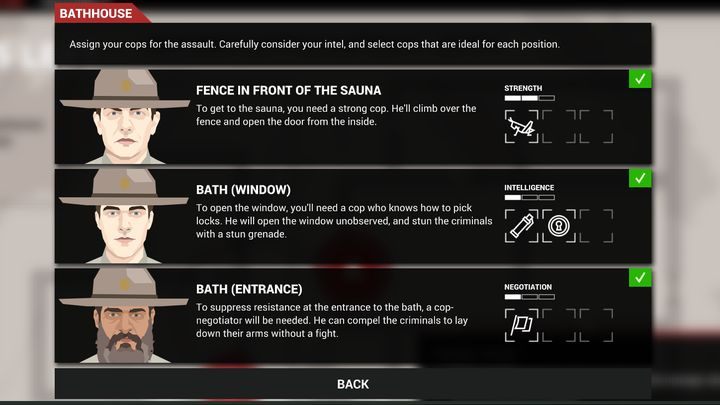
They claimed that the beating was lawful, but it was not until a videotape of the incident was released when it was confirmed that the officers had collectively fabricated their stories. The officers involved were expected to have been following the "blue code". In 1991, Rodney King was brutally beaten by multiple police officers of the Los Angeles Police Department.
#THIS IS THE POLICE 2 LOYALTY CODE#
He's going to be labeled as a rat." The following year saw the founding of the Civilian Complaint Review Board, an all-civilian board tasked with investigating civil complaints about alleged misconduct on the part of the New York City Police Department.Īfter that, the International Association of Chiefs of Police made a code of police conduct publication and rigorously trained police officers. In 1992, the Mollen Commission, commissioned to investigate reports of police corruption in New York City, noted that "The pervasiveness of the code of silence is itself alarming." One New York City police officer said, "If a cop decided to tell on me, his career's ruined. In 1991, the Christopher Commission was formed in Los Angeles in response to the beating of Rodney King in March of that year by four members of the Los Angeles Police Department.

Police officer Frank Serpico's startling testimony against fellow officers not only revealed systemic corruption but highlighted a longstanding obstacle to investigating these abuses: the fraternal understanding among police officers known variously as "the Code of Silence" and "the Blue Curtain" under which officers regard testimony against a fellow officer as betrayal. In 1970, New York City organized the Knapp Commission to hold hearings on the extent of corruption in the city's police department. Supreme Court has consistently held that officers be given the benefit of the doubt that they acted lawfully in fulfilling their duties, a position reaffirmed in Saucier v. It is often hard to convict an officer of following the code or other forms of corruption because officers are protected by defense of immunity, which is an exemption from penalties and burdens that the law generally places on private citizens. To be convicted, the plaintiffs must prove that the officer was following the "code" or participating in negligence and unlawful conduct. If an officer is convicted, they may be forced to pay high fines or be imprisoned. The police department is only responsible for preventing corruption among officers. If an officer is in violation of any of the officer misconduct federal laws, only the federal government can issue a suit. Federal laws strongly prohibit officer misconduct, including officers who follow the code by " testilying" or failing to report any officer who is participating in corruption. If the officer is found guilty, officers can be sued by the victim for damage caused by police brutality, false arrest and imprisonment, malicious prosecution, and wrongful death. There are also some state laws put in place to help protect civilians and criminals from corrupt officers. They train new recruits and investigate police officers if they have a complaint from a civilian or an alleged criminal. Many police departments have their own official code of conduct. Many prosecutors allowed police perjury to occur, as well. The Commission found that the officers were not lying for greed but because they believed that they were imprisoning people who deserved it.


Some police officers also fabricated stories when testifying before a jury. They discovered that some officers falsified documents such as arrest reports, warrants and evidence to provide "cover" for an illegal arrest or search. In 1992, the Commission to Investigate Allegations of Police Corruption (also known as the Mollen Commission) undertook a two-year investigation on perjury in law enforcement. Officers who do not lie in court may sometimes be threatened and ostracized by fellow police officers. Police perjury or "testilying" (in United States police slang) is when an officer gives false testimony in court. Officers who follow the code are unable to report fellow officers who participate in corruption due to the unwritten laws of their "police family". All of these are considered illegal offenses and are grounds for suspension or immediate dismissal. Many officers who follow the code may participate in some of these acts during their career for personal matters or in order to protect or support fellow officers. Officers who engaged in discriminatory arrests, physical or verbal harassment, and selective enforcement of the law may be considered to be corrupt.

The code is considered to be an example of alleged police corruption and misconduct.


 0 kommentar(er)
0 kommentar(er)
